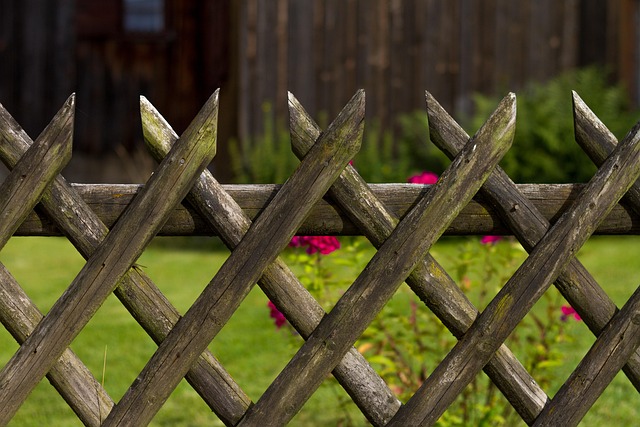When considering residential fence installation in New Bedford, MA, understanding the process and choosing a reputable company is crucial. This guide delves into everything from selecting the right fence type—wood, vinyl, or chain-link—to navigating permits and post-installation care. By factoring in aspects like budget, style preferences, and local regulations, homeowners can ensure their new fence enhances property value and offers both aesthetics and security.
- Understanding Residential Fence Installation in New Bedford
- Choosing the Right Fence Company: Factors to Consider
- Common Types of Fences for Your Home
- Permits and Regulations: What You Need to Know
- Post-Installation Care: Maintaining Your New Fence
Understanding Residential Fence Installation in New Bedford
Residential fence installation in New Bedford involves a range of services aimed at enhancing property security, aesthetics, and privacy. Companies specializing in this area offer various types of fences, from traditional wooden picket fences to modern vinyl or iron alternatives. The process typically begins with a consultation where homeowners discuss their preferences, budget, and specific needs, such as height requirements for privacy or security.
During the installation phase, professionals assess the property’s topography, ensuring proper fence alignment and stability. They handle all aspects, from preparing the ground to setting posts, attaching panels or rails, and securing gates. Post-installation, many companies provide warranties and maintenance plans, ensuring the longevity of the fence while addressing any issues promptly.
Choosing the Right Fence Company: Factors to Consider
When selecting a residential fence installation company in New Bedford, MA, it’s crucial to consider several factors that will ensure you get a sturdy and aesthetically pleasing fence. First, research their reputation and experience; opt for companies with a proven track record and positive reviews from previous clients. This guarantees you’ll receive quality materials and expert craftsmanship.
Additionally, verify the company’s licensing and insurance to protect yourself from potential risks or liabilities. Ask for references and examples of their work to gauge their capabilities and design preferences, ensuring they align with your vision. A transparent communication process and clear contract terms are also essential, outlining project timelines, costs, and any warranties offered.
Common Types of Fences for Your Home
When it comes to fencing your residential property in New Bedford, MA, there are numerous options to choose from. The type of fence you select should align with both aesthetics and functionality. Common types include wood fences, known for their natural beauty and ease of customization, offering a classic look that enhances any outdoor space. Vinyl fences are another popular choice due to their low maintenance requirements and wide range of styles, from traditional picket fences to more modern designs.
Chain-link fences are robust and secure, often preferred for security purposes or in areas requiring higher privacy levels. Iron or metal fences offer durability and a touch of elegance, suitable for formal settings or homes with historic architecture. Each material and design comes with its unique benefits and considerations, so understanding your needs and preferences is key to selecting the perfect residential fence installation company.
Permits and Regulations: What You Need to Know
Before hiring any residential fence installation company in New Bedford, MA, it’s crucial to understand the permits and regulations that govern such installations. These rules are designed to ensure safety, maintain neighborhood aesthetics, and protect property values. Check with your local building department or town clerk’s office to determine if a permit is required for your specific project. The type of fence, its height, and location can all impact whether a permit is needed.
Failure to obtain the necessary permits can result in fines or even the requirement to dismantle and redo the work. Additionally, some areas may have specific guidelines regarding the materials used, such as banning certain types of plastics or mandating the use of eco-friendly options. Familiarizing yourself with these regulations beforehand ensures a smooth installation process and helps you avoid potential legal issues down the line.
Post-Installation Care: Maintaining Your New Fence
After your residential fence installation is complete, proper care will ensure its longevity and maintain its aesthetic appeal. Start by clearing any debris that may have accumulated during the installation process. Regular cleaning with a soft brush or garden hose will help remove dirt, leaves, or other particles that can damage the fence over time.
Inspect your new fence regularly for any signs of wear or potential issues. Repairs are easier and less costly when addressed promptly. Keep an eye out for loose posts, damaged panels, or rusted hardware, and take care of these matters immediately. Applying a protective coat of weather-resistant sealant annually can also preserve the fence’s finish and deter rot or fading.
